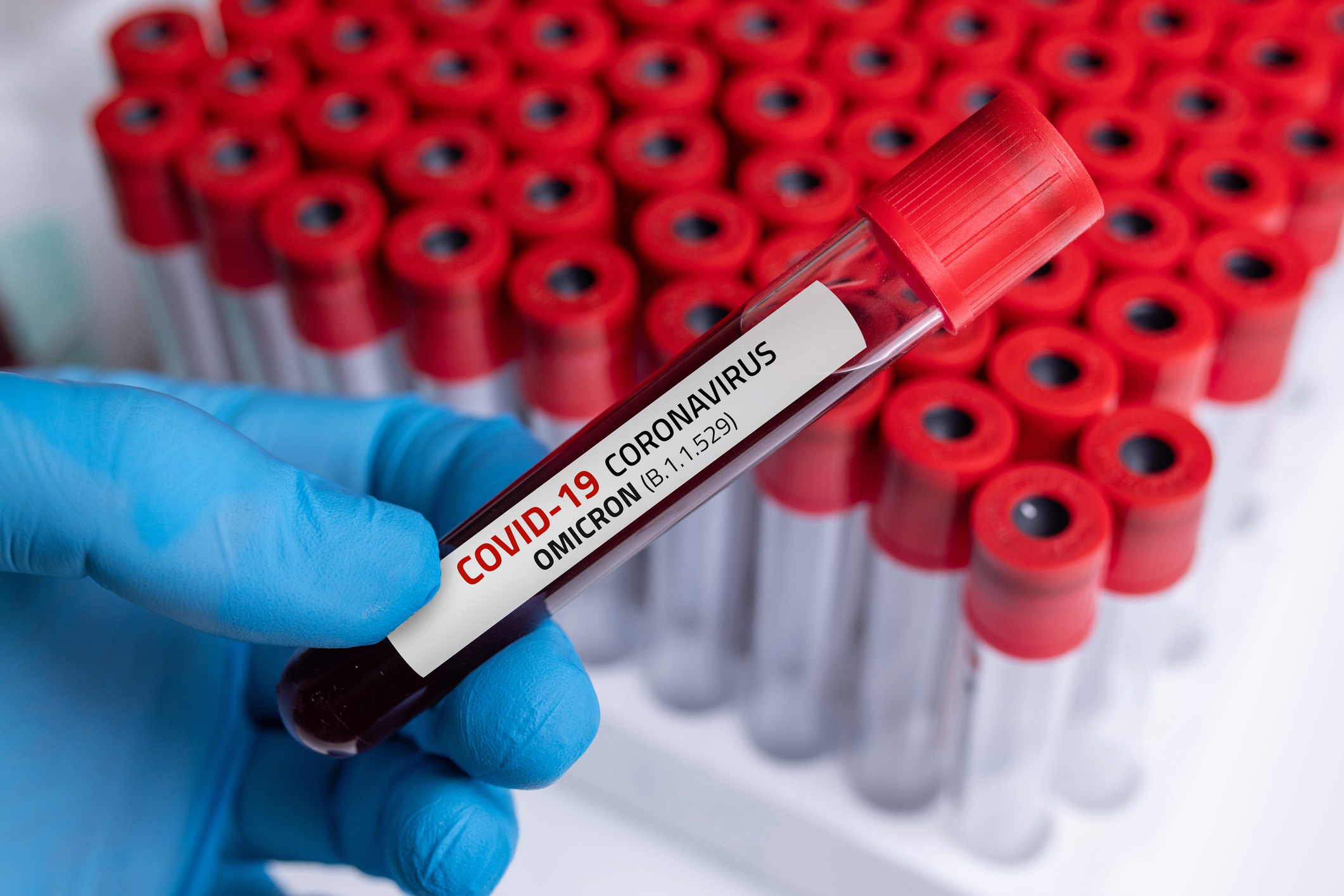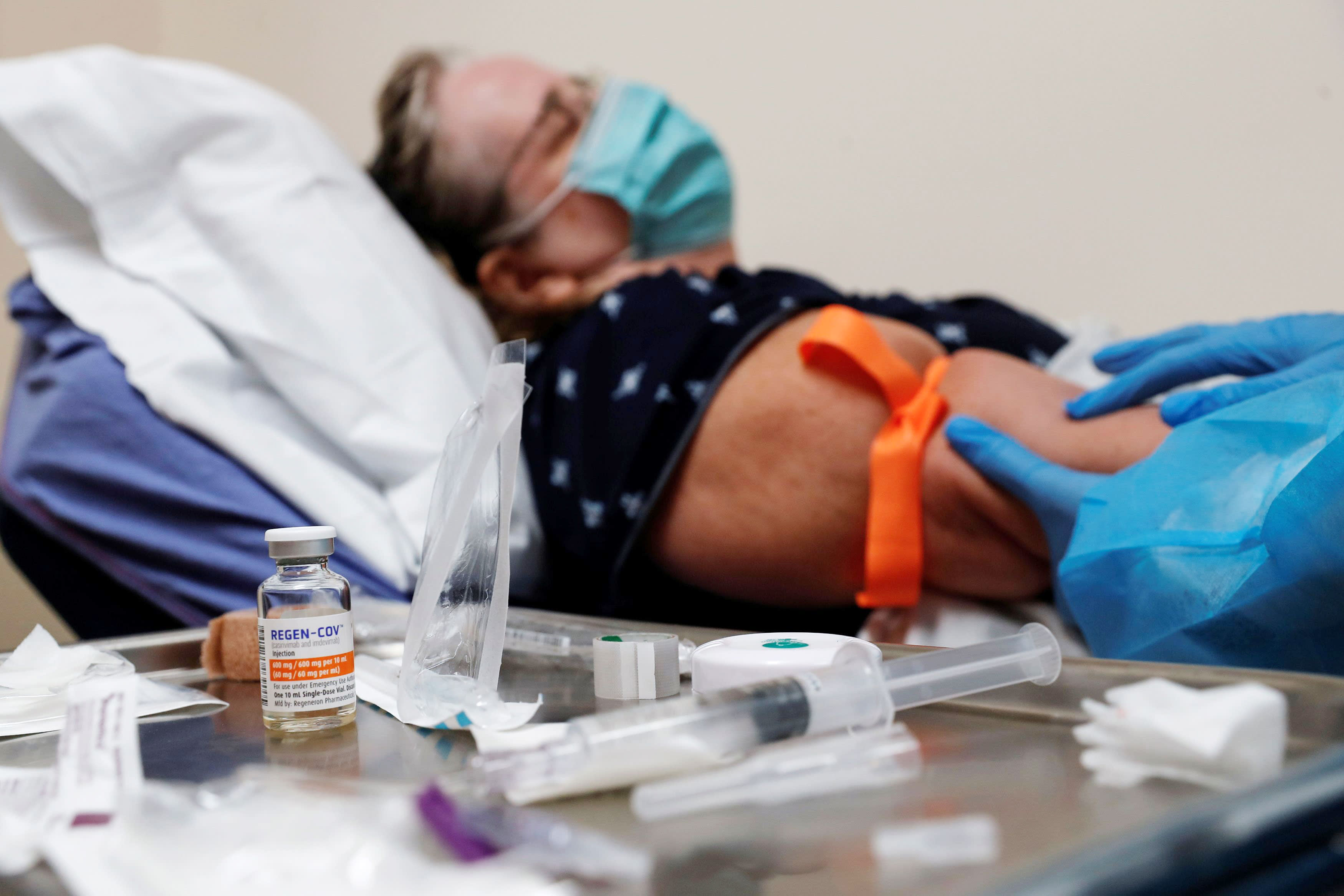In the last week, medical experts have learned a lot about the highly contagious omicron COVID-19 variant. As more studies continue to be published, doctors are getting a better understanding of the new strain just as cases are beginning to spread across the U.S. and New England.
On Tuesday, Boston reported its first three omicron cases, and experts say it has already begun to spread across the state. The data is showing a huge surge in omicron cases in parts of Africa and European countries like Norway and Denmark.
WATCH ANYTIME FOR FREE
Stream NBC10 Boston news for free, 24/7, wherever you are. |
"This is very worrisome," Dr. David Hamer of Boston Medical Center said this week.
What should residents be doing to protect themselves? Medical experts seem to agree that the best thing they can be doing right now is to get vaccinated if they are not already, and to get a booster if they are eligible.
Get updates on what's happening in Boston to your inbox. Sign up for our News Headlines newsletter.
But how effective are the vaccines and the boosters against the omicron vaccine? We asked two top Boston doctors what they've learned about omicron in recent days during NBC10 Boston's weekly "COVID Q&A" series Tuesday.
Does the vaccine protect against omicron? Does it affect the severity of illness?
So far, the Pfizer vaccine seems to offer less defense against infection from the variant, but still good protection from hospitalization, according to an analysis of data from South Africa, where the new variant is driving a surge in infections.
Source: CoVariants
Amy O’Kruk/NBC
According to the data, a two-dose Pfizer-BioNTech vaccination appeared to provide just 33% protection against infection during South Africa's current omicron wave, but 70% protection against hospitalization, according to the analysis conducted by Discovery Health, South Africa’s largest private health insurer, and the South African Medical Research Council.
"Since last week, a number of studies have come out with quite a few different methodologies essentially showing the same thing, which is that even two doses of an mRNA vaccine are not going to be as effective," said Dr. Shira Doron of Tufts Medical Center. "It is more difficult for the antibodies generated to neutralize the omicron variant, but third doses or infection plus two doses brings the level of antibody effectiveness up to what you would expect with two doses with the prior variants. So boosters, by lab data, seem like they will really make a difference in terms of vaccine effectiveness. But we still need to see how things play out on the larger scale in the real world."
"A very early data release from South Africa shows Pfizer reduces hospital risks by 70% with patients with omicron, but it has much lower protective effect against symptomatic effects," Hamer said.
But like Doron, he cautioned that "it will be important to get some real world data giving us an idea of how well the vaccine is working."
The bottom line, Hamer said, is that we still don't know all that much about the effectiveness of the existing vaccines against omicron.
Does a booster help against omicron?
This also isn't yet known for sure, but early signs are that it should.
"Immediately post booster there may be a stronger protective effect," Hamer said. "So there is some hope, but it does sort of suggest that there may be a need to modify the vaccine so it better targets omicron. I think both Moderna and Pfizer are working on prototypes of that."
Does Pfizer or Moderna offer better protection against omicron?
All the data so far about vaccine efficacy against omicron has centered around Pfizer, so it's too soon to say for sure.
"I think we can assume it will be similar for Moderna," Doron said. "But there's so many variables here it would be hard to guess. Generally, the results should be similar when Moderna and Pfizer are studied."
Should I wait until there is an omicron-specific vaccine to get a booster?
Both Hamer and Doron said if you can get a booster now, you should.
"I think we can expect it to offer added protection," Doron said. "When people say, 'Should I wait for a potential omicron-specific booster to come out or should I get a booster now?' the answer is you should get a booster now."
If the existing boosters prove effective against omicron, as experts anticipate, she said it's likely that the vaccine manufacturers won't even release an omicron-specific booster.



